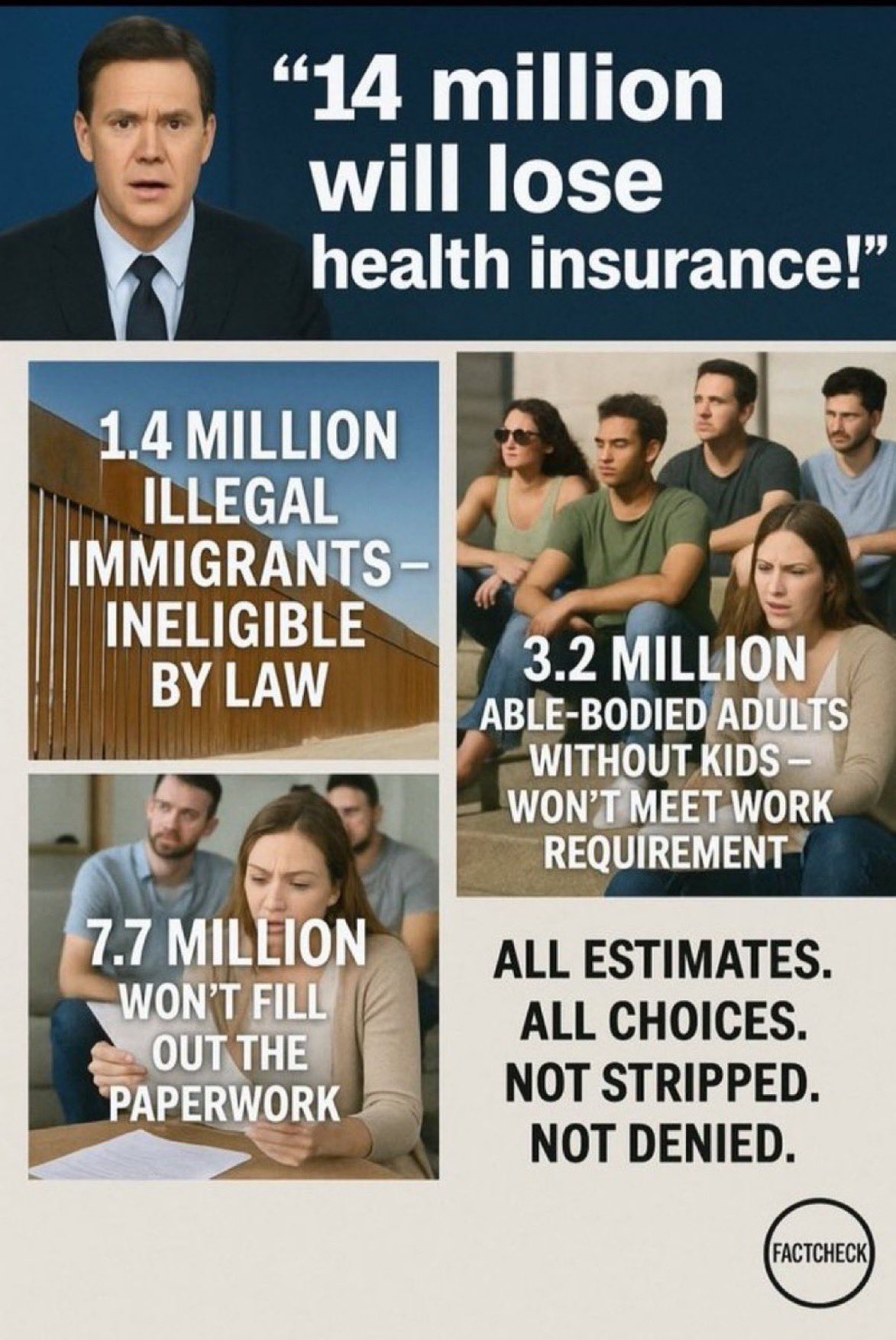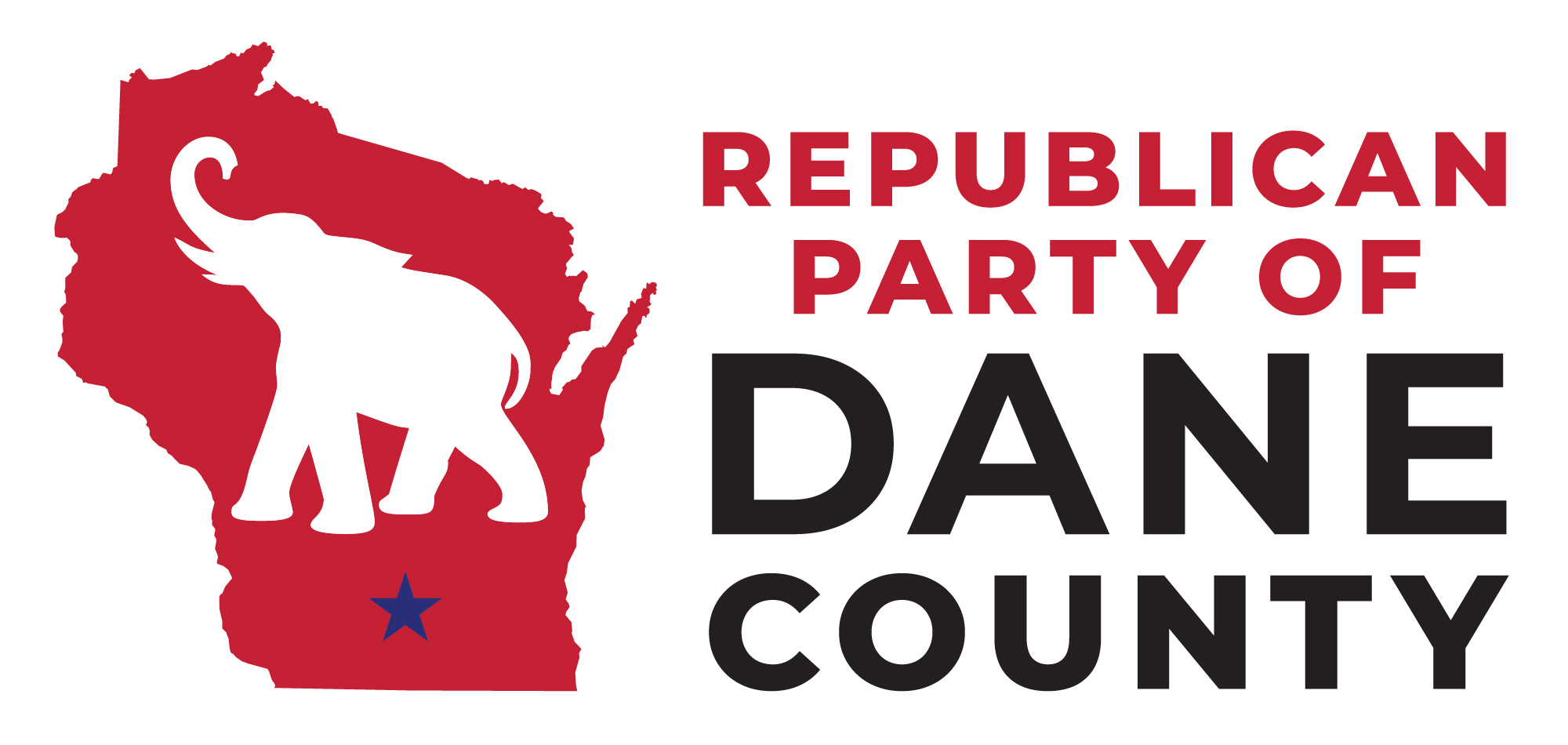The OBBBA introduces measures to streamline Medicaid, ensuring it serves those who truly need it while reducing inefficiencies. Key provisions include:
• Work Requirements: Able-bodied adults aged 19–64 without dependents must engage in 80 hours per month of work, volunteering, or approved activities starting in 2026. This promotes self-reliance and aligns with bipartisan principles from the Clinton-era welfare reforms, fostering dignity and economic stability.
• Enhanced Eligibility Verification: States must conduct eligibility checks every six months instead of annually, ensuring only eligible individuals receive benefits. This strengthens program integrity and reduces improper payments.
• Restrictions on State-Funded Programs for Undocumented Immigrants: The bill reduces federal Medicaid funding for states that use their own funds to cover undocumented immigrants, saving an estimated $11 billion over 10 years by discouraging such programs.
• Prohibited Funding for Certain Services: Medicaid funds are barred from supporting abortion providers like Planned Parenthood and gender transition care, redirecting resources to core healthcare services.
• Reduction in Federal Medicaid Spending: The Congressional Budget Office (CBO) estimates a $1.02 trillion reduction in federal Medicaid and CHIP spending over 10 years, with approximately 11 million people potentially losing coverage, primarily those who do not meet new eligibility criteria.
Data Points Highlighting Impact
• Coverage Impact: The CBO projects that 11 million people, including 4.8 million able-bodied adults without dependents, may lose Medicaid coverage by 2034 due to work requirements and stricter verification processes. An additional 1.4 million individuals in state-funded programs for undocumented immigrants may also lose coverage.
• Budget Savings: The OBBBA is expected to save $1.02 trillion in federal Medicaid spending by 2034, with an additional $11 billion saved by penalizing states that fund coverage for undocumented immigrants. These savings contribute to broader fiscal responsibility, potentially offsetting tax cuts and reducing the national deficit.
• Improper Payments Reduction: Over the past decade, improper Medicaid payments have exceeded $500 billion, with $56 billion spent annually on benefits for able-bodied adults and others potentially abusing the system. The OBBBA’s reforms aim to curb this, ensuring funds are used effectively.
• State Cost-Sharing: Starting in 2028, states will share 5% of SNAP benefit costs, indirectly affecting Medicaid by encouraging fiscal discipline at the state level.
Accuracy of Democrats’ Concerns
Democrats have expressed concerns that the OBBBA’s Medicaid provisions will harm vulnerable populations, including children, families in poverty, and people with disabilities, and lead to healthcare provider closures. While these concerns reflect a desire to protect access to care, they are partially overstated:
• Impact on Vulnerable Groups: Democrats argue that the bill’s work requirements and paperwork burdens will disproportionately affect low-income families and individuals with disabilities. However, the OBBBA includes exemptions for pregnant women, caregivers of children under 13, and those with disabilities, ensuring protections for these groups. Research from KFF indicates that 92% of Medicaid enrollees are either working or qualify for exemptions, suggesting that most eligible individuals will retain coverage if they comply with reporting requirements.
• Provider Closures: Critics claim that rural hospitals and community health centers may close due to reduced Medicaid funding. The CBO and other analyses note that over 300 rural hospitals are at risk, but the bill includes a $50 billion relief fund to support these facilities over five years, mitigating potential closures.
• Accuracy Assessment: While Democrats’ concerns about coverage losses are grounded in CBO projections (11.8 million uninsured by 2034 under the Senate version), the bill’s focus on reducing fraud and ineligible enrollment ensures that Medicaid remains robust for those who qualify. The claim that the bill only targets “able-bodied non-workers” is supported by CBO estimates that 4.8 million such individuals may lose coverage, but paperwork challenges could affect others, a point Democrats exaggerate without acknowledging the exemptions and relief measures.
Impact on Budget and Services
The OBBBA’s Medicaid reforms deliver significant benefits to the national budget and healthcare services:
• Budget Benefits: By cutting $1.02 trillion in federal spending, the OBBBA strengthens fiscal discipline, allowing the government to prioritize tax relief and investments in defense and border security. The $11 billion saved by discouraging state-funded coverage for undocumented immigrants further reduces taxpayer burdens. These savings help offset the bill’s estimated $3.3–$3.6 trillion addition to the deficit over 10 years, supporting long-term economic stability.
• Service Enhancements: By focusing Medicaid on eligible citizens, the bill ensures that resources are directed to essential services like nursing home care, pediatric care, and support for low-income families. The elimination of funding for controversial services (e.g., gender transition care and abortion providers) allows Medicaid to prioritize broadly supported healthcare needs. The $50 billion rural hospital fund preserves access to care in underserved areas, maintaining critical services.
• Program Sustainability: Reducing improper payments, estimated at over $500 billion in the past decade, ensures Medicaid’s long-term viability, protecting it for future generations. The work requirements encourage self-sufficiency, potentially reducing dependency and freeing up resources for the truly needy.
Medicaid Usage by Undocumented Immigrants and Able-Bodied Adults
• Undocumented Immigrants: Contrary to some claims, undocumented immigrants are not eligible for federal Medicaid. However, 14 states and the District of Columbia use state funds to provide coverage to approximately 1.4 million undocumented individuals. The OBBBA reduces federal Medicaid matching rates (from 90% to 80%) for states that continue these programs, saving $11 billion and discouraging taxpayer-funded benefits for non-citizens. Emergency Medicaid for undocumented individuals accounts for less than 1% of Medicaid spending, ensuring minimal impact on overall program costs.
• Able-Bodied Adults Without Children: The CBO estimates that 4.8 million able-bodied adults without dependents could lose Medicaid coverage due to work requirements. KFF data shows that only 8% of Medicaid recipients aged 19–64 (not on SSI or SSDI) are not working due to reasons like retirement or inability to find work. The OBBBA’s work requirements target this group, promoting workforce participation and reducing reliance on public assistance. This ensures Medicaid focuses on those with genuine need, such as the 34% of enrollees who are children, 13% with disabilities, and 10% over 65.
Benefits to the Country
The OBBBA’s Medicaid reforms offer numerous benefits to the United States:
• Fiscal Responsibility: By saving over $1 trillion, the bill strengthens the federal budget, enabling tax cuts that benefit middle- and working-class families, such as the $6,000 deduction for seniors and no tax on tips or overtime.
• Program Integrity: Enhanced verification and work requirements reduce fraud and abuse, ensuring Medicaid serves its intended purpose—supporting low-income citizens and vulnerable populations.
• Economic Growth: Encouraging work among able-bodied adults fosters economic independence, boosting productivity and reducing long-term welfare costs.
• Prioritizing Citizens: By limiting state-funded coverage for undocumented immigrants, the OBBBA ensures taxpayer resources prioritize American citizens, aligning with public sentiment (80% view Medicaid favorably).
• Healthcare Stability: The rural hospital relief fund and focus on essential services maintain access to care, particularly in underserved communities, while streamlining Medicaid for efficiency.
In conclusion, the OBBBA’s Medicaid reforms are a bold step toward a more sustainable, efficient, and equitable healthcare system. By targeting fraud, encouraging self-reliance, and prioritizing citizens, the bill strengthens Medicaid for those who need it most, delivering long-term benefits to the nation’s fiscal health and social fabric.









































